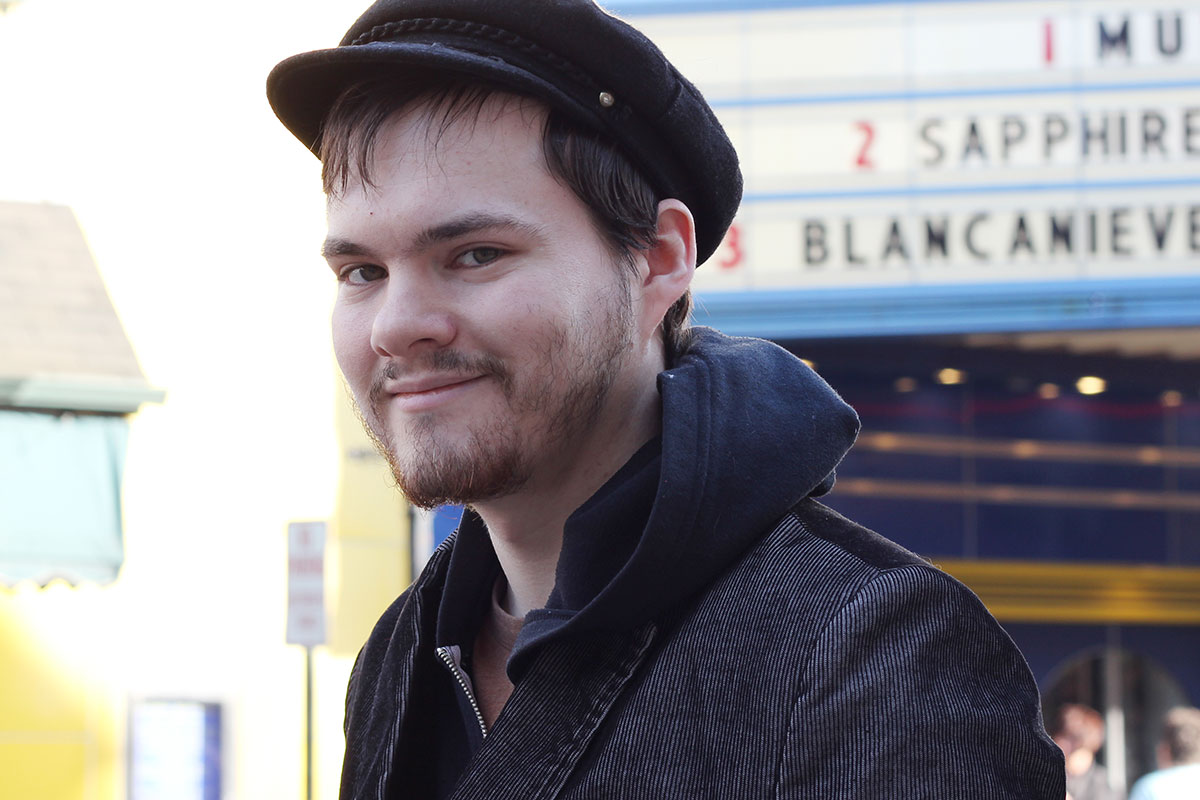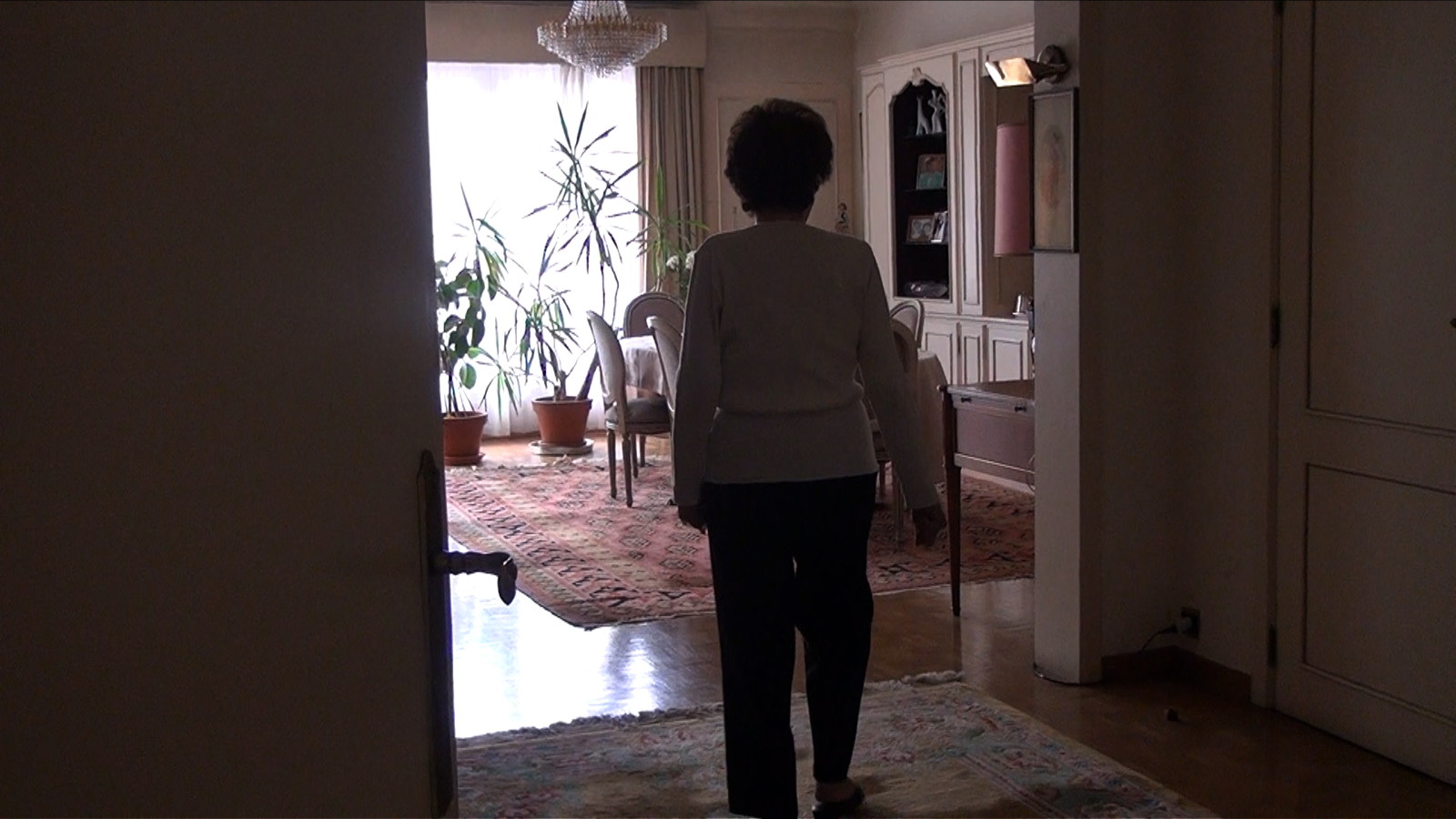The Pope was in town when the New York Film
Festival kicked off this year. My friend, the marvelous critic Tanner Tafelski, and I
walked past a line that felt a mile long of people waiting to stand near him.
It gave me flashbacks of waiting in line to see “Inherent Vice” at last year’s
festival. Dozens of critics waited in the rain and cold for hours just to be
the first people to see a film they hoped would shake the ground beneath their
tired feet. I’m sure those hundreds of people waiting to shake the Pope’s hand felt
something similar. Frankly, there isn’t much separating auteurism from religion.
Both have their towering figures, both have infinite interpretations, and both
threaten to become exercises in ideological stasis if we don’t allow our
interpretations to evolve. Two films seem to exemplify the positive and
negative ways auteurists let their worldview effect the way they process new
works of art. Chantal Akerman’s films will have either spoken to her fans or
made enemies of strangers, and thus her receptions are all largely the same.
Michel Gondry, on the other hand, has swerved wildly since his first major
success (“Eternal Sunshine of the Spotless Mind”), and now everything he does
is judged against it. If he succeeds critically, it’s because he’s made a film
close in spirit to “Eternal Sunshine.” If he fails, the film has nothing of
“Eternal Sunshine” in it.
Chantal Akerman, a one-woman Belgian New
Wave, essentially gifted the world slow or durational cinema when she refused
to cut away from European women getting about their frequently oppressed,
directionless lives. Their confusion was Akerman’s metier. She found the sweet
spot between too much and too little and her unblinking views of women
preparing food, smoking, having (dis)passionate sex, making art and being
completely miserable offered a new linguistic avenue for filmmakers everywhere.
She opened the world of film up to incalculable possibility. You may never
confuse them, but filmmakers like Bela Tarr, Tsai Ming-Liang, Sofia Coppola and
Ben Rivers (whose short “A Distant Episode” may actually be the best film at
the festival, full stop) enjoy their critical foothold because it was first
carved into the landscape by Akerman. Her latest, “No Home Movie,” is a sort of
sequel to her transcendent “Letters From Home.” In that film, she read letters
from her mother over footage of New York City, where she’d escaped to. The
voice of Akerman’s mother was nervous, curious, and accepting, yet you could
still sense that she was an alien presence in her daughter’s life. The film
communicates a certain measure of guilt in its melancholy fusion of image and
sound: “This is where I am. This is who I’ve left behind.” It was a document of
loneliness that was absent her responses. Her voice didn’t matter. “No Home
Movie” finds Akerman once more in conversation with her mother, in person and
over Skype as she tours the festival circuit (presumably with her last film,
2011’s near-perfect “Almayer’s Folly”). Once more she sidelines herself, shooting
only her back, her silhouette or catching her reflection in a computer screen.
Her presence is only important here insomuch as it draws her mother towards the
camera, gets her to open up about a childhood lived under occupation, and forces
her to walk across her apartment.
Godfrey Cheshire, whose wonderful parallel coverage
of the festival you’ll have been reading on this very site if you’ve got any sense, missed the
screening of “No Home Movie” and asked me what I thought about it. I told him I
loved it, but that isn’t so shocking as I speak her language. There was almost
no way I wasn’t going to like it. Here’s where the auteurist worldview may
drift perilously close to rigidity. Do I love her films, regardless of their
individual successes/failures, or because she uses her distinct POV/framework
to draw artistic conclusions no one else would have? It’s a question I wish we
would ask ourselves more often. Why do certain image makers speak to us more
than others?
Akerman’s been my patron saint ever since I first learned about
her work. I dedicated one of my own films to her. She taught me that an image,
held long enough, can be something with which a viewer forms a relationship.
Hers are alive in ways few other director’s compositions manage to be. Her
static frames become terrariums, and the characters become human specimens
telling us about existence with each infinitesimal gesture. “No Home Movie”
does rely heavily on her usual long-take form, but she also breaks her own
stylistic rules because this is a documentary with a most unruly subject: the
way she thinks about and talks to her mother (on paper this is a document of
Akerman and her mother hanging out sporadically over a few months’ time). When
Akerman wanders around her mother’s apartment searching for mirrors and then
cutting away from them before she risks finding her reflection, she is
communicating a few very important things. She’s asking us to consider the
identity and humanity of the author and their distance from any subject; to
realize that films can be as simple as one human filming another. By looking
through her mother’s empty house and conclusively finding no subject, she is
showing us her own maddening and desperate search for herself in her mother.
She begs for meaning in her mother’s declining health and her continuous
absence in this great woman’s life (signified by the Skype calls from various
corners of the world), this woman who survived a war, outlived her husband and
gave the filmmaker life. If the film just looks like a bunch of haphazardly
assembled shots of a woman trying to get her mom to talk on camera, there’s a
greater-than-average chance you won’t see the absurdly tragic study of
mortality at the heart of “No Home Movie.” But if you speak Akerman’s language,
the concept of her making a film chronicling her real-time regret over her role
in her mother’s life is too peremptory an experience to ignore. The woman whose
life I’ve watched through her collection of images, each of them as much about
her journey as any of her subject’s, freely offers a glimpse inside the darkest
moments of her life. To refuse them would be sacrilege, no matter how painful
the movie can sometimes feel.

My connection to Michel Gondry isn’t nearly
as strong. Like just about everyone else I was bowled over by “Eternal Sunshine
of the Spotless Mind.” I was bored by the aimlessly depressive “Science of
Sleep,” charmed by the underrated “Be Kind, Rewind,” eluded by “The Thorn In
the Heart” and “Green Hornet,” enthralled by “Is The Man Who Is Tall Happy?”
and horrified by “Mood Indigo.” The overwhelming question since his debut
feature has been whether his style—monochrome reality penetrated by
technicolor fantasy—can be supported by anything less than A+ writing. His
inventive art direction can seem like a distraction when the material doesn’t
support his papier-mâché flights of fancy. The negative reviews that crept up on
him sent him into a tailspin search for identity that evidently led him to the
conclusion that what audiences were tired of was his direction. With his
latest, “Microbe & Gasoline,” he’s replaced it with an intense focus on his writing. Think about that for a
second. When the director of such boundlessly innovative works as “Eternal
Sunshine” and “Be Kind, Rewind” trades in his visuals for a script that’s
basically non-stop dialogue, what in the world does that leave you with?
Microbe, so named by his classmates because
of his short stature, is getting nowhere in the school’s on-going popularity
contest. When similarly alienated new kid Gasoline (he fixes cars) takes a
shine to him, Microbe decides that they’ll be best friends. They build a tiny
car together and disguise it as a house so that cops won’t pull them over and
ask to see pesky things like license or registration. They’ll just think it’s a
tiny house, right? A fundamental absurdity like that ought to be played for
laughs, but Gondry takes them at their word and never has them encounter any
trouble with the law. They go on a road trip over summer vacation without
informing their parents. They have a few kooky adventures, learn nothing, then
return home.
A lot of amiable buddy comedies and road
movies have, fittingly enough, a moment at a crossroads. They could take a
left, try something new with their ideas and become “Two Lane Blacktop” or
“Midnight Run.” Or they could take a right and become every movie you’ve ever
seen. When “Microbe & Gasoline” took a right, around the time the boys set
out on their summer trip, I was deeply discouraged. I knew exactly what was
going to happen from that point on, a few stray details, like a deranged
dentist and a weirdly racist aside involving Asian criminals, notwithstanding.
I get a strong
feeling that Gondry wanted to make a film out of the middle section of “The 400
Blows” about Antoine Doinel and his friend stealing things together, and he
sometimes even approaches Truffaut’s easy, ruffled charm in describing the
boys’ rapport. What confuses me is why someone as talented as Gondry would deny
himself any opportunity to enliven this shopworn bunch of non-events with his
inimitable craft. I caught myself having a little debate as the film hit every
expected beat on its way towards the conclusion. What criteria was I using to
judge Gondry? Am I still holding him up to his first movie and asking him to
use that as his identity? Is it wrong to want him to be my version of his best?
A fairly deft conversation scheme, snappy dialogue, and a handful of distinctly
Gondryan touches like a live-action slow-mo replay kept things lively but the
film lacks something major. If I can no longer expect Gondry to try his best,
even when reinventing himself as an ordinary, low-key director, it seems
strange to either hold him to the standards he set in the first phase of his
career, or for that matter allow him leeway simply because of the goodwill he
engendered through his best work. If Gondry wants to evolve, the only hope
anyone has of enjoying that process is to stop holding him to promises he has
no interest in keeping. He does not owe us another “Eternal Sunshine” and I
think he finally realized that if he was to continue directing, letting go of
the trappings of his past life was the first step. I, for one, welcome the new
Michel Gondry because I’m willing to bet that if this is a reset button, what
happens next will be better and attempting to recapture his spark was getting
him nowhere.
If we don’t allow our tastes and beliefs to evolve with a changing
world, then our predilections will become blinders and we may come to resent
the changes in art, the same way conservatives hate the Pope for accepting gay
marriage (rumors of a meeting with Kim Davis notwithstanding). Frankly, I don’t know which of these events I’d have had a harder time
believing ten years ago: that Michel Gondry would eventually make a terribly
ordinary little movie about two kids who run away for a summer, or that a Pope
preaching love at all costs would fill the streets of New York with a queue of
people thousands deep who wanted to be a little closer to him. It’s just good
to know that the line will keep moving and at the other end will be something
that rewards your belief.












